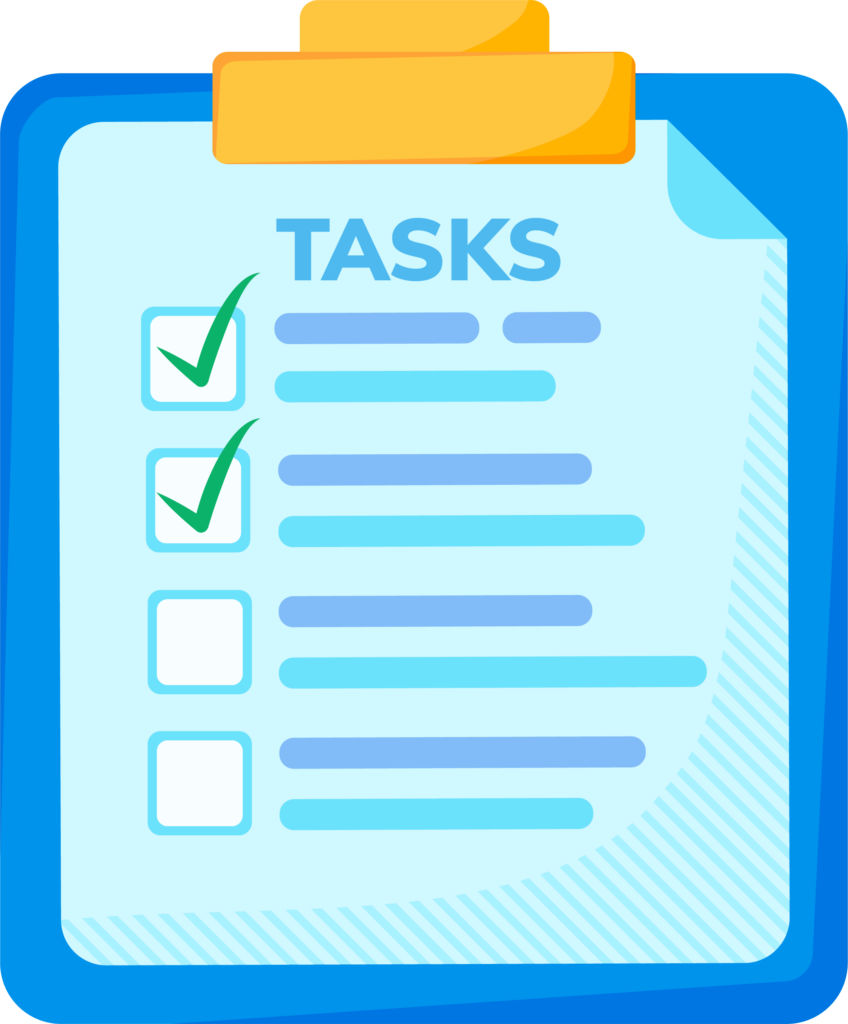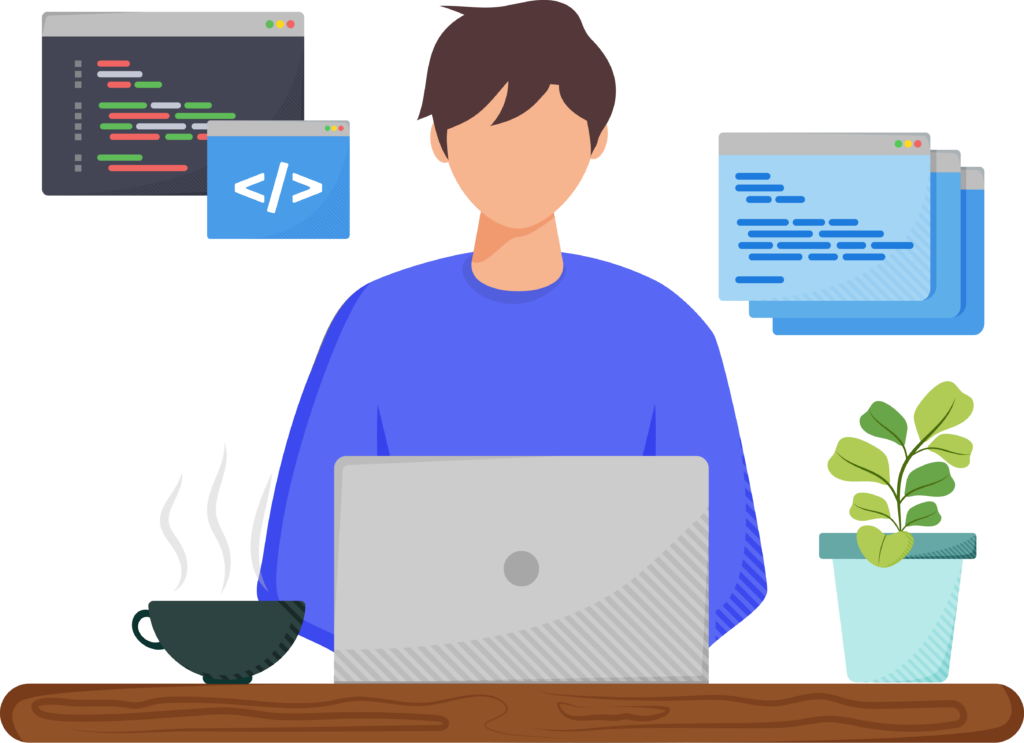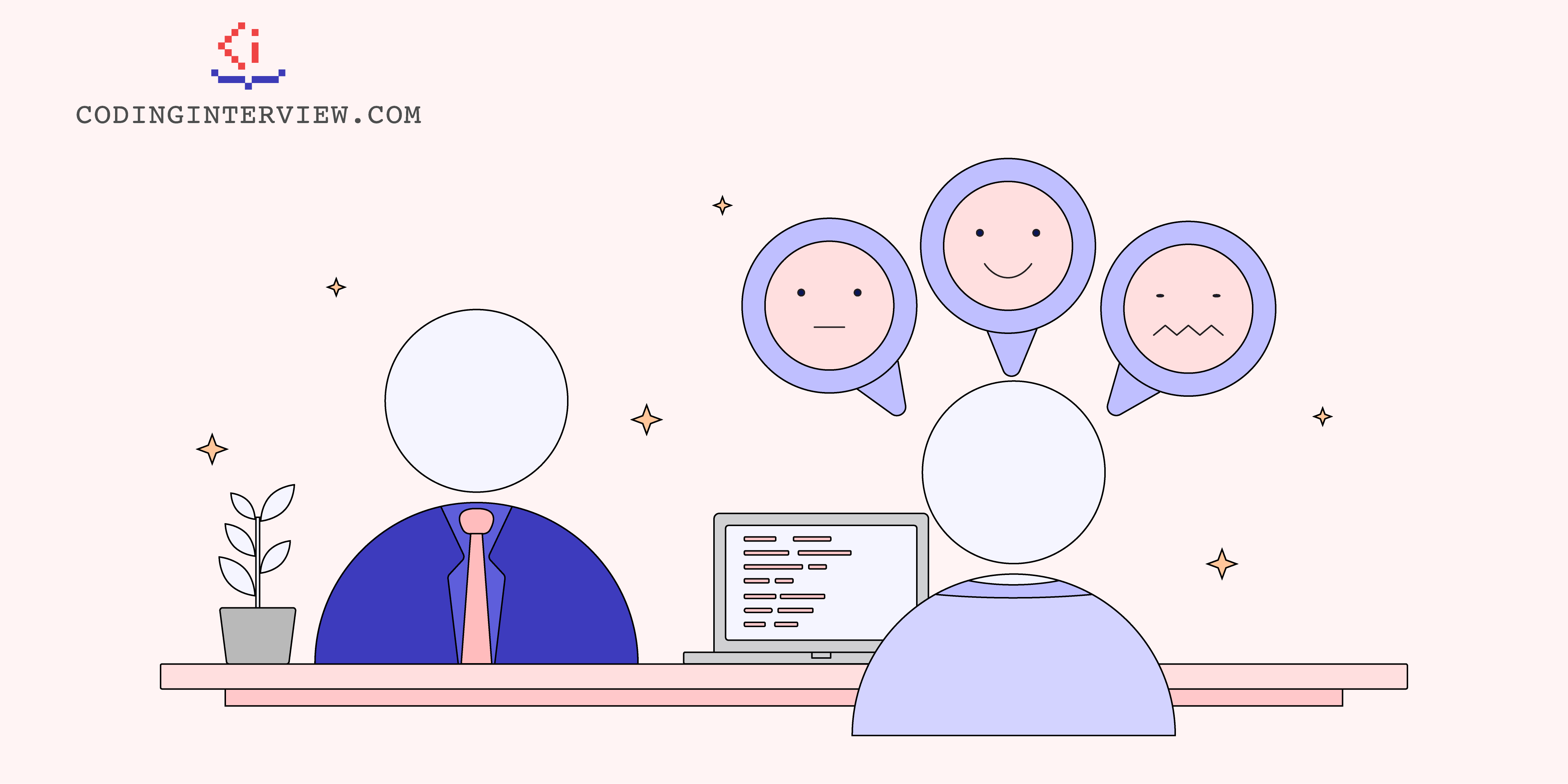When preparing for software engineering interviews, it’s easy to get caught up in coding challenges, algorithms, and system design. However, mastering the technical aspects is not the only part of the equation. Many leading tech companies place significant weight on behavioral interviews, where even the most technically proficient candidates can falter. Knowing how to showcase your soft skills can set you apart in this highly competitive field.
In this blog, we’ll examine the significance of behavioral interviews and the key skills they assess. We’ll then outline the objectives of these interviews to help you understand what interviewers are looking for. Following this, we’ll provide effective preparation strategies, including practical tips and techniques. Finally, we’ll cover essential dos and don’ts to guide you through the interview process and offer valuable resources to enhance your preparation.
Importance and objectives of behavioral interviews
Acing the technical interview is important, but don’t overlook the behavioral interview to stand out as a top candidate. While technical skills can be learned and replaced, what sets you apart is how you approach challenges, collaborate with others, and reflect on your experiences. Behavioral interviews give hiring teams insights into your personality, work ethic, and how you handle real-world situations.
Behavioral interviews help hiring teams assess soft skills that often decide hiring decisions, especially when candidates have similar technical abilities. To better understand these interviews, we’ll first explore their objectives and key skills to focus on.

Objectives of behavioral interviews
The main objectives of behavioral interviews are as follows:
- Assessing past behavior: Interviewers aim to understand how you’ve handled specific situations to predict how you’ll respond in similar scenarios in the future.
- Evaluating soft skills: Examine your interpersonal and problem-solving skills, which are crucial for team dynamics and project success.
- Understanding decision-making processes: By examining how you’ve made decisions in prior situations, companies can assess how well you will handle the demands of their environment.
- Predicting team and organizational contributions: Your past behaviors provide interviewers with evidence of your competence, readiness, and the value you can bring to their team beyond technical expertise.
Key skills to highlight
To stand out in your behavioral interview, emphasize these key skills, which demonstrate your ability to excel in a dynamic team environment.
- Communication: Convey your thoughts, explain your reasoning, and simplify complex topics for non-technical team members.
- Collaboration: Show your ability to work well with others by sharing examples of team contributions and navigating interpersonal challenges.
- Problem-solving: Demonstrate how you approach and resolve difficult situations, analyze issues, and identify solutions under pressure.
- Adaptability: Highlight flexibility in adjusting to changes, dealing with uncertainty, and managing evolving project requirements.
- Cultural fit: Ensure you align with the company’s values and work environment, showcasing your understanding of their mission and culture.
These key skills will provide a well-rounded picture of your suitability for the role and alignment with the company’s values.
How to prepare for behavioral interviews
Effective preparation for behavioral interviews goes beyond just knowing the questions; it requires crafting thoughtful, well-structured responses and practicing them thoroughly. Here’s a guide to help you prepare:
Prepare and practice for common behavioral questions
Behavioral questions are designed to assess how you’ve handled specific situations in the past, offering insights into how you might perform in similar scenarios in the future. Preparing thoughtful answers using structured techniques can give you an edge in these interviews.
Common behavioral interview questions typically cover teamwork, conflict resolution, problem-solving, and adaptability. Here are some frequently asked questions that you should be ready for:
- Describe a situation where you had to collaborate with a difficult team member. What steps did you take?
- Tell me about a time you faced a challenge in a project. How did you overcome it?
- Can you give an example of a time you disagreed with a team decision? How did you address it?
- How do you prioritize your tasks when you have multiple deadlines approaching?
- Tell me about a time when you made a mistake at work. How did you handle it?
By practicing your responses to such questions, you can feel more confident and articulate during the interview. For more detailed practice and structured learning, consider enrolling in a specialized course like Grokking the Behavioral Interview. This course provides in-depth insights, practical exercises, and expert tips to help you master behavioral interviews and excel in your job search.
Grokking the Behavioral Interview: The ultimate guide to behavioral interviews. Developed by FAANG engineers. Use real-world questions, video recording, and structured strategies to get interview-ready in just a few hours.
Additionally, you can explore our other resources, such as:
- Behavioral interviews: How to prepare and ace interview questions
- Ace Google’s behavioral interview: Questions and tips for coders
These blogs will guide you in developing a comprehensive preparation strategy for your upcoming interviews.
Learn the STAR answer format
The STAR method is a powerful framework for answering behavioral interview questions. The STAR method stands for situation, task, action, and result. It helps you structure your responses in a way that’s both clear and impactful, allowing interviewers to understand the situation, how you handled it, and the outcome of your actions. Here’s a detailed breakdown of each component:
Situation: Choose relevant scenarios
Start by providing context. Describe a specific event, challenge, or situation you encountered. This sets the stage for your response and gives the interviewer insight into the background. Be concise and focus only on relevant details.

Task: Define the challenge clearly
Next, explain the specific challenge or task you were responsible for. What was your role, and what needed to be accomplished? This highlights your level of responsibility and involvement.

Action: Showcase your thought process
Now, describe the actions you took to address the task or problem. Be specific about the steps you followed, your decisions, and why you chose those actions. This is where you demonstrate your problem-solving and decision-making skills.

Result: Prove your impact
Finally, share the outcome of your actions. Quantify the results where possible (e.g., improved performance, meeting deadlines, achieving targets) and mention any key learnings or positive feedback. The result shows your approach’s effectiveness and allows you to highlight your impact.

Let’s apply the STAR method to a different question to ensure you have a clear understanding and can apply it effectively yourself:

Using the STAR method ensures your answers are clear and focused, making it easier for interviewers to follow your thought process and evaluate your skills. This method isn’t just about telling a story; it’s about demonstrating how you think and act in real-world situations—an aspect that FAANG interviewers specifically look for.
Prepare experiences showcasing fit to the company’s culture
Every company has a unique culture that reflects its mission, values, and work environment. To ace your behavioral interview, preparing examples highlighting how your experiences align with the company’s culture is vital. Start by researching the company’s core values and mission statement. Then, reflect on your career experiences that demonstrate these traits.
For example, if a company values collaboration and teamwork, choose a story where you worked effectively in a team, overcame challenges, and contributed positively. If the company emphasizes innovation, highlight when you took the initiative or developed creative solutions to problems.
Practice with mock behavioral interviews
One of the best ways to prepare for behavioral interviews is to simulate real interview conditions through mock interviews. This lets you practice confidently delivering your answers, refining your communication, and receiving constructive feedback. Mock interviews also help you become more comfortable with the flow of behavioral questions, ensuring your responses are structured and effective.
You can practice mock interviews in several ways:
- With friends or colleagues: Have someone you trust to play the role of the interviewer and provide feedback.
- Mentors or career coaches: These professionals can offer expert guidance and point out areas for improvement.
- AI-powered mock interviews: This tool offers a realistic, tech-focused mock interview experience that simulates behavioral questions you might encounter during the interviews. With detailed feedback provided by AI, you can refine your answers and practice at your own pace.

Behavioral interviews offered by Educative
You’ll be well-prepared for the real thing by practicing with mock interviews. Here are some key benefits of incorporating this into your preparation:
Use structured courses
Structured courses can be highly beneficial if you seek a more comprehensive approach to behavioral interview preparation. Many platforms offer specialized courses focused on improving your behavioral interview skills. These courses often cover key strategies, common questions, and proven techniques like the STAR method to help you craft thoughtful, effective responses.
One great resource I recommend for preparing for your behavioral interview is Grokking the Behavioral Interview. This course dives deep into behavioral interview preparation, offering examples, expert tips, and exercises designed specifically for software engineers. It’s tailored to help you succeed in interviews at top tech companies, including MAANG.
To give you a clearer idea of what this course entails, here is a snapshot of the course outline:

Dos and don’ts in behavioral interviews
Nailing a behavioral interview involves more than just answering questions. How you present yourself, the examples you choose, and your overall attitude can significantly impact your interview decision. Here are some key dos and don’ts to help you navigate this part of the interview:
Dos
- Practice your stories: Prepare and rehearse several examples highlighting your key skills (communication, collaboration, problem-solving, etc.). Structure your answers using the STAR method to stay clear and concise.
- Be honest: It’s okay if you don’t have a perfect answer for every question. What matters most is that you’re authentic and reflect on your experiences with genuine insight.
- Maintain a positive attitude: Frame your answers positively when discussing challenges or conflicts. Focus on what you learned from difficult situations and how you applied those lessons to improve.
Don’ts
- Don’t ramble: Stay focused and answer the question directly. Avoid going off-topic or providing unnecessary details.
- Don’t speak negatively about past employers: Even if you had a bad experience, refrain from criticizing your previous employer or team. Instead, focus on how you grew from the situation.
- Don’t exaggerate: Be honest about your contributions and experiences. Exaggerating or embellishing could backfire if follow-up questions reveal inconsistencies.
Following these dos and don’ts will help you present yourself confidently and professionally, showing interviewers that you’re well-prepared and thoughtful in your responses.
Conclusion
Behavioral interviews are your opportunity to showcase the qualities that make you a strong, well-rounded candidate—not just a skilled engineer. By preparing thoughtfully and emphasizing skills like communication, collaboration, and adaptability, you’ll position yourself as someone who can thrive in the company’s culture. Practice answering these questions using structured techniques, like the STAR method, and consider mock interviews to refine your approach.
However, excelling in the hiring process involves more than just behavioral interviews. You’ll need to prepare for various stages, including technical interviews such as coding, object-oriented design, and system design. To support you in your comprehensive preparation, Educative offers specialized courses designed to help you succeed at every phase:
With the right preparation, you can confidently present yourself as the complete package—a candidate ready to excel technically and as a valuable team member.
Good luck with your interview preparation!


